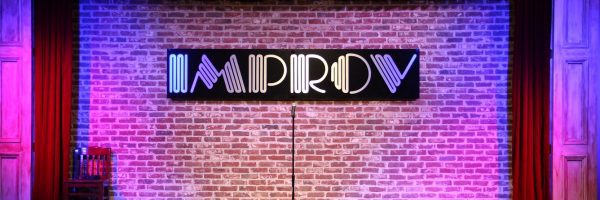Which Cambridge Judge Scholarships Are Right For You?

Money can be a compounding stressor when it comes to earning an MBA. Sure, the degree is worth it, but achieving it requires serious planning. With books, housing, and a social life, the bills add up. Luckily, most universities and business schools offer scholarships to make it easier for students to attend.
Take London’s Cambridge Judge Business School, for example. The Financial Times ranked the business school’s MBA program as the fifth best in the world in 2017, and the best overall in the UK. To help join one of the world’s preeminent business institutions, a number of scholarships are available. Some focus on academic achievement, but others are about equity and go toward students of a specific nationality or gender. The institution recognizes that this type of financial assistance is necessary—after all, one year of tuition costs £49,000 (nearly $64,000 USD). That, of course, doesn’t include books or meals.
Those interested in applying for these Cambridge Judge scholarships must do so before the school year officially begins.
The Boustany Foundation Scholarship: The Boustany Foundation Scholarship offers £23,000 in financial assistance, as well as any travel costs. The scholarship is granted once every two years with priority given to Lebanese nationals. However, an applicant must be “outstanding and highly meriting.”
The Culture, Arts and Media Bursary: This scholarship looks at candidates interested in working in media, which can include fields such as journalism, creative writing, or production. The offer caps at £10,000. Once the scholarship is offered, applicants are expected to compete through an essay and give a talk on the media to the class.
The Ruth Whaley Bursary for Women in Science: This is a scholarship specifically for women working in finance. The Ruth Whaley Bursary gives a candidate £10,000—as well as the opportunity to mentor with Ruth Whaley, the founder of New York-based risk management consulting firm Barset Consulting LLC. The goal? That more women take up senior finance positions.
The EY Scholarship for Angolan Residents: This is the only scholarship that covers the business school’s full-tuition. That includes college fees, living expenses, and a flight back home to Angola. Applicants for the EY Scholarship are required to write an essay on how they’d use their time at Cambridge to further sustainable development to Angola.
The Sainsbury Bursary Scheme: Despite what the name suggests, this scholarship is no scheme. It recognizes applicants who have worked in the charity and volunteer sectors, offering them £14,000-28,000. They must show how they’d use their skills to continue this work. UK citizens working in the UK are given priority.
The Maissa Karim Scholarship: This £2,500 award is in honor of the lake Maissa Karim, a member of the school’s 2005 program. Now, that might not sound like much, but the money goes to a candidate who wouldn’t be able to do the MBA program without financial assistance. Every dollar counts.
The St. Catherine’s Benavitch Scholarship: This generous gift offers five candidates £10,000 each. Named after the late Maurice and Natalie Benavitch, the scholarship is supposed to develop tomorrow’s business leaders. Those who receive the award will join St Catherine’s College, a five-minute walk from Cambridge Judge. That means that five lucky candidates will have access to not one, but two university campuses.
Metro News & Notes: The Business of Improv, Souring on Wall Street, and More

Good morning and happy Friday!
Here are a few stories you may have missed from the week that was …
How Improv Methods from Comedy Can Lift Business Performance | Knowledge@Wharton
There aren’t many part-time comedians and business school professors, but Bob Kulhan doesn’t fit the norm. An adjunct professor at both Duke University and the Columbia Business School, Kulhan is the founder and CEO of Business Improv and co-author of the new book “Yes And”: The Art of Business Improvisation. Speaking on the Knowledge@Wharton podcast about his new work, Kulhan talks about his improv-upbringing in the Chicago comedy scene and how it can be applied in a business setting.
When discussing those in business who struggle to think on the fly, Kulhan notes, “There are all sorts of biases that keep us from just communicating with people and keeping an open mind. What we look for in improvisation is a postponement in judgment and the critical thinking to another side so that we can take in and absorb the offers and opportunities that are being presented to us.”
The concept of “Yes And” (the building block of improv comedy structure), Kulhan notes, can help build individual development, which then helps build team development. “When great minds and intelligent people are sharing thoughts … the collective consciousness of the group will outweigh that of any individual,” he says.
Check out the Knowledge@Wharton podcast today.
A Record Percentage of MBAs Don’t Want to Work on Wall Street | Bloomberg
Training the Street, a New York City-based finance training firm, affirmed what many had already begun to suspect: Wall Street jobs are becoming less appealing.
The new survey data found that MBA graduates would like to work at the largest “bulge bracket banks” at the lowest rates in eight years—right after the peak of the economic recession. Scott Rostan, Founder and CEO of Training The Street, said in a release, “Banks are still a dominant hiring force for MBAs and continue to attract top talent, but working for larger, established companies off of Wall Street is becoming more attractive to MBAs as they offer a different type of lifestyle.”
Bloomberg writer Julie Verhage notes that interest in finance is not necessarily disappearing, however. “Other employment options hit record levels of preference this year,” Verhage notes. “Top choices included consulting firms at 20 percent, corporate development at a Fortune 2000 company at 13 percent and boutique banks at 12 percent.”
Find out more about the survey here.
AI Creeps Into the Work of MBA Career Advisers | Financial Times
The AI revolution may be a little less Terminator 2 (so far) than people might have expected, but it’s still changing the MBA game. In a new piece from the Financial Times, writer Jonathan Moules examines several of the world’s top business schools utilizing AI advantages for students, including Vmock, a helpful student résumé assistant created by grads from the Chicago Booth School of Business and Northwestern Kellogg School of Management.
“More than 100 higher education institutions, including 17 of the top 20 business schools on the FT MBA ranking list, pay an annual subscription for Vmock’s software,” Moules writes. The cost to use the program is a modest fee of $19.95, with over one million résumés already uploaded.
Like Vmock, much of the AI-infused technology used in business schools was “born out of a frustration the founders felt as MBA students themselves.” Moules’ sources insist that the infusion of tech will not replace the hands-on help of career advisers, but I doubt many of them are ready for Terminator 2 world either.
Metro News & Notes: Stanford Wants You in the Midwest, MBA Essays and More

Good morning and happy Friday!
Here are a few stories you may have missed from the week that was …
Stanford Will Pay MBAs $160,000 to Work in the U.S. Midwest | CNBC
Earlier this week, the Stanford Graduates School of Business announced three winners of its first-ever Stanford USA MBA Fellowship, which will reportedly pay each student upwards of $160,000 for two years of tuition. CNBC writer Catherine Clifford explains:
“To be eligible for the scholarship, you have to have a connection to the Midwest. You can be a current resident of a Midwestern state, which Stanford defines as Illinois, Indiana, Iowa, Kansas, Michigan, Minnesota, Missouri, Nebraska, North Dakota, Ohio, South Dakota or Wisconsin. Alternatively, you could have lived for three consecutive years in one of those states, have graduated high school in one of those states or have ‘experiences that demonstrate a strong commitment to, and interest in, the development of the region.'”
There is a stipulation with the lucrative scholarship, however. Those students must agree to work in the Midwest within two years of graduation. Clifford notes that by the times grads have been out of Stanford GSB for four years, at least two of those years will have to have been working in the Midwest.
“The winners of the first Stanford USA MBA Fellowship are Adam Verhasselt, Amanda Donohue-Hansen and Taylor Seabaugh,” Clifford writes. “Verhasselt was raised on a dairy farm owned by his family in Wisconsin and is the first in his family to graduate from college. Donohue-Hansen is from California but graduated from University of Minnesota and lived and work there for 10 years. Seabaugh grew up in St. Louis, Missouri, and returned after graduating from college to work at 3M and volunteer at local public schools.”
Read more about the Stanford USA MBA Fellowship here.
High School Students Dream Big – with Help of MBA Mentors | The Globe & Mail
Three Toronto metro high school students recently earned some valuable hands-on help from second-year Schulich School of Business MBA candidate Cortney Mills. The partnership came to fruition from the semester-long case competition Summit Leaders, founded last year by MBA students from the Rotman School of Management at the University of Toronto, writes the Globe & Mail. The goal of the nonprofit summit is to help underprivileged high schoolers from the community, giving them in-person lessons about business and entrepreneurship.
“’A lot of students don’t realize this [business] is an avenue they can take and they are often the brightest people,’ says David St. Bernard, a Co-Founder of Summit Leaders who graduated this spring with combined degrees in business and law at U of T.”
“’Sometimes they need that little push,’ he says of the younger students in the program. ‘Our idea is to give them the avenue to open up their ideas and create more connections within the community.’ Students do not have to choose a business career, he adds, ‘but at least we give them the opportunity to choose.’”
Find out more about the Summit Leaders nonprofit program here.
Your MBA Application Essay Mastered | Financial Times
Admissions teams know that essays are where students have to individually shine. Work experience, grades and GMAT score tell a lot about a student, of course, but the essay is a chance for them to stick out beyond traditional parameters.
In a recent piece with the Financial Times, Yuan Ding, Dean of the China Europe International Business School, says, “[The essay] is where we learn about applicants’ career aspiration, understanding of China, and writing skills.”
Rob Weiler, UCLA Anderson School of Management MBA Program Associate Dean, also notes how students need to be pretty concise with their words. “If an applicant attempts to add too much supplemental information, chances are they are trying too hard,” he says in the piece. Applicants to the UCLA Anderson MBA program all have a 500-world limit on their essays.
In contrast, institutions like the IESE Business School in Spain do not limit applicants to any standards on essays, offering immensely flexible entry capabilities. Dean Franz Heukamp says, “The ones that grab our attention do so not because they say something we have never heard before, are wild or outrageous. What makes a cover letter special is when it is very clear that the candidate knows what he or she wants to achieve professionally.”
Read more about what school’s may or may not expect from your application essay here.
Why Online MBA Flexibility Really Matters

Earning an MBA, for many, can be a monumentally difficult decision. For the lucky few, their employers may provide the necessary funding to earn the degree or they already have expendable finances. For many others, though, the time and cost is just too much. However, Online MBA flexibility can help mitigate those difficult deciding factors.
Metro Jobs Report: Startup Experts, a De-Globalized World and more

Lets dig into the latest jobs news …
Babson Expands Entrepreneurial Opportunities for Women MBAs

While more women than ever are earning MBAs, there’s still a lot to be done to advance the role of women in business. Though the average enrollment of women in full-time MBA programs at 36 top business schools climbed from 32 percent to 36 percent between 2011 and 2015, that growth hasn’t necessarily been reflected in the workforce yet. Women occupy only 22.9 percent of board positions for Fortune 500 companies and only 6.4 percent of CEO positions.
Babson’s Women Innovating Now (WIN) Lab is part of that school’s effort to bridge this gap and increase the number of women leaders in business. Continue reading…
